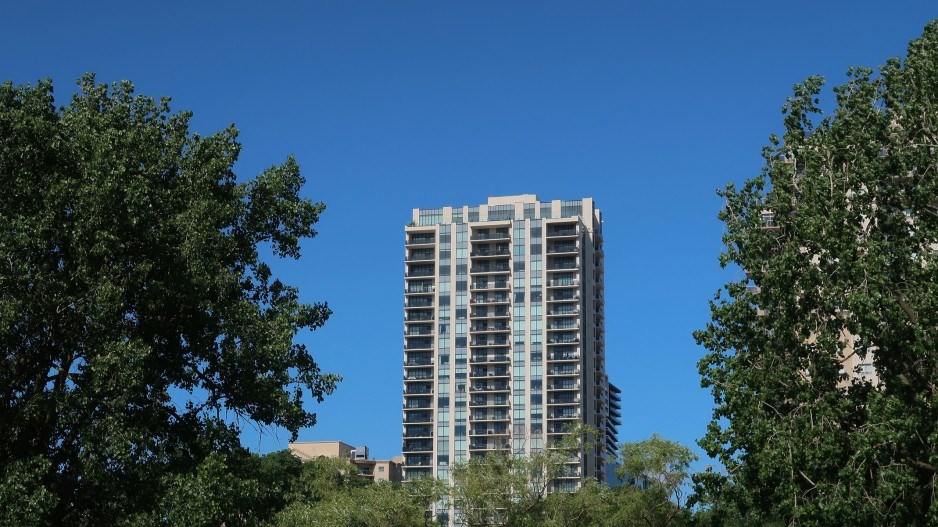“Bribes are like steroids – everyone’s doing it. And if you don’t do it, you fall behind,” revealing that bribery in a commercial setting is a “hidden standard” of doing business with governments, recently reported in a major news article.
So it should be no surprise that in many cities, getting approval for housing projects involves questionable, even illegal fees paid to local governments that accumulated massive slush funds as a result.
Builders must pay to play. For example, a Vancouver homebuilder proposed a 33-storey apartment building with 127 new homes to help address the housing shortage.
Before project approval, city staff demanded through a private “negotiation”, a payment of $26 million they say will go towards “amenities” like daycares, or community centres, even though billions paid often disappear into the black hole of government. Homebuilders know this fee is called a “community amenity contribution” or CAC, which everyone pretends is a “voluntary” payment, but if you don’t cough up the cash, your project won’t get approved.
After nearly two decades of these fees, Vancouver is finally getting its first new community centre and is now exploring long overdue, transparent “fixed cost” CACs for some smaller projects.
Yet this CAC fee is illegal according to the BC Government’s 2014 CAC guide developed in consultation with local governments, builders, legal and academic experts. They warned municipalities to avoid “imposing any charge, including CACs for which there is no legal authority.”
The guide stresses these fees:
- reduce housing affordability,
- increase home prices and
- reduce housing supply because land owners have less incentive to sell if developers try to deduct CACs from offered land prices.
Vancouver is no outlier. Toronto-based real estate analyst Ben Meyers dubs all these fees the “Great Housing Daylight Robbery”, growing 1,169 per cent since 2001.
So far, all these fees (and taxes) have helped fund eye-popping growth in government staff in Vancouver especially, where executives earn from $251K to $343K. The Canada Mortgage & Housing Corp. is also in on the housing shakedown, funded partly through homebuyers’ insurance fees. Under CMHC’s goal of “housing affordability for all” it awarded 90% of their workforce with $75M in bonuses despite many Canadians being unable to find a home. Their average executive salary is $697,667, says the Canadian Taxpayers’ Federation.
These growing government bureaucracies then create more regulatory barriers, and fees that prevent necessary housing from being built. An East Vancouver builder’s tweet thread went viral when he said the city staff required an arborist (tree expert) report for a simple bathroom renovation. Homebuilder application processing times have tripled from 10 – 20 years ago. After builders pay all these extortionary costs, who do you think pays it in the end?
You do, if you’re buying or renting a home. In the 33-storey example above, that amounts to nearly $205,000 per apartment. That’s just one of many fees and taxes levied by government on builders, passed on to future buyers and renters.
Surprisingly, the City of Vancouver’s director of planning insisted in a recent email to Business in Vancouver that CAC costs have no negative impact on housing.
That’s magical thinking, but governments count on consumers being unaware of these costs hidden in prices or rents. Easier to blame foreign buyers or speculators.
Government fees and taxes now consume as much as a whopping 29.25 per cent or $327,565 for a new Vancouver apartment priced at $1.1M. and 33 per cent of average monthly rent. This was the key outcome of our property tax team’s latest study of Vancouver, Kelowna and Saanich housing. That’s a 49 per cent increase in government fees in five years from our last 2018 study that found the government bite then was 26 per cent or $220,256 of the total $840,000 cost of a typical new Vancouver 800-sq.-ft. condo apartment. A buyer with a new 25-year mortgage would pay nearly $600K in extra costs when these fees are factored into their mortgage with interest!
A Canadian Centre for Economic Analysis confirmed new Ontario homes averaging a $940,400 purchase price have 31 per cent or $288,500 paid to some level of government, up from 25 per cent in 2012.
On the flip side, what happens to the housing crisis with tax reductions? Kelowna tested a 10-year property tax exemption if new apartments remain in the rental market. Infotel reports: “Over the past eight years, 2,700 new rental housing units were built in Kelowna…a 70 per cent increase since 2014” when rental builders were offered tax breaks.
That’s a positive, small step. But we face a grim imbalance of hundreds of thousands of homes needed for Canada’s population growth.
More tax incentives like removing GST on new rentals built, red tape reduction, and pre-approved housing designs would help. Consider Float Homes (avoiding high land costs), Tiny Homes, Fourplexes, even Fonzie Suites (apartments above carports)!
Simple solutions have eluded governments who’ve become vampires in the housing sector. They should look in the mirror for housing unaffordability causes. However, vampires don’t see their own reflection.
Paul Sullivan is principal and regional leader at Ryan ULC, a global tax services and software provider. They recently acquired the local B.C. commercial real estate appraisal firm Burgess, Cawley, Sullivan, advocates of local business tax relief for more than 40 years.




